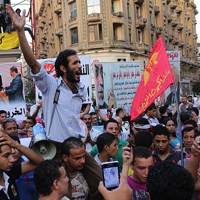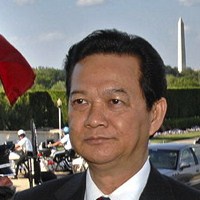
Last week, Alexei Navalny, a Russian anti-corruption activist and blogger who gained a reputation as unofficial leader of the Russian opposition during protests against President Vladimir Putin, was freed on bail pending appeal of his five-year prison sentence on charges of embezzlement. Navalny now plans to run for mayor of Moscow, despite a prosecution many see as politically motivated. “The question still remains as to whether the movement can grow from ‘anti-Putin’ or ‘pro-Navalny’ to something with a real political program,” Sarah Oates, professor and senior scholar at the University of Maryland’s Philip Merrill College of Journalism and author of […]


